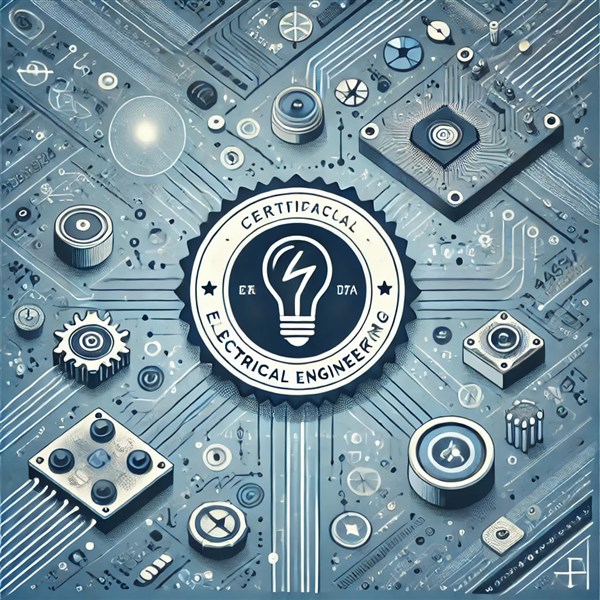Unable to find what you're searching for?
We're here to help you find it
Electrical engineering is one of the most dynamic and impactful fields in modern technology, influencing industries such as energy, manufacturing, telecommunications, and automation. With increasing advancements in electrical systems and smart technologies, professionals in this field must continually update their skills and credentials to stay competitive.
One of the best ways to establish credibility and enhance career prospects in electrical engineering is through certification. Earning an electrical engineering certification validates your expertise, boosts job opportunities, and positions you as a highly skilled professional in the industry.
In this blog, we explore why electrical engineering certification is essential for career growth, its benefits, top certifications, and how to obtain one.
Electrical engineering certification is a credential that verifies an individual's technical skills, knowledge, and competency in electrical systems, power distribution, control systems, and related technologies. These certifications are typically awarded by professional organizations, universities, or governing bodies to ensure industry-standard expertise among electrical engineers.
Certifications may cover various subfields, including:
In today’s competitive job market, having an electrical engineering certification can set you apart from other candidates. Many companies prefer or even require certified professionals, especially for positions involving safety regulations, project management, and specialized technical skills.
A certification can lead to opportunities in:
Certifications serve as proof that you have acquired in-depth knowledge and hands-on expertise in electrical engineering. Employers trust certified engineers to be well-versed in industry standards, electrical codes, and advanced technologies.
Certified electrical engineers often earn higher salaries compared to their non-certified counterparts. A certification demonstrates expertise and professionalism, making you eligible for higher-paying positions, promotions, and leadership roles.
According to industry data, certified electrical engineers earn 10-30% more than those without certification, depending on the industry and location.
Certifications are awarded by respected institutions such as the Institute of Electrical and Electronics Engineers (IEEE) and National Society of Professional Engineers (NSPE). Holding a recognized certification enhances your professional reputation and credibility among peers, employers, and clients.
In many countries, obtaining a professional engineering license requires passing specific certification exams. For example, in the United States, the Professional Engineer (PE) license is a mandatory requirement for offering engineering services to the public.
Electrical engineering is constantly evolving with innovations such as smart grids, IoT, and renewable energy systems. Certification programs ensure that professionals stay up to date with the latest standards, safety regulations, and emerging technologies.
With automation and artificial intelligence changing the job landscape, certifications offer security by validating specialized skills that cannot be easily replaced by technology. This makes certified engineers more valuable assets to organizations.
Here are some of the most recognized certifications in the electrical engineering field:
Determine which certification aligns with your career goals. If you aim to work in renewable energy, go for NABCEP certification. If you want to become a licensed engineer, pursue a PE license.
Most certifications require:
Many organizations provide training programs, both online and in-person, to help candidates prepare for certification exams.
Exams typically cover technical knowledge, industry standards, and real-world applications. Some exams also include hands-on assessments.
Many certifications require periodic renewal through continuing education, professional development hours, or re-examinations.
Conclusion
Electrical engineering certification is more than just a credential—it is a gateway to career advancement, higher salaries, and industry recognition. Whether you’re a fresh graduate or a seasoned engineer, obtaining a certification can set you apart in the competitive job market.
By choosing the right certification, gaining practical experience, and staying updated with industry trends, you can position yourself as a highly skilled professional in the evolving field of electrical engineering.
In a nutshell, an electrical engineering certification is not just a career booster; it's a career necessity. It equips you with the skills and knowledge you need to thrive in the ever-evolving field of electrical engineering. With a certification from Koenig Solutions, you can confidently step into the future of electrical engineering.

Aarav Goel has top education industry knowledge with 4 years of experience. Being a passionate blogger also does blogging on the technology niche.










